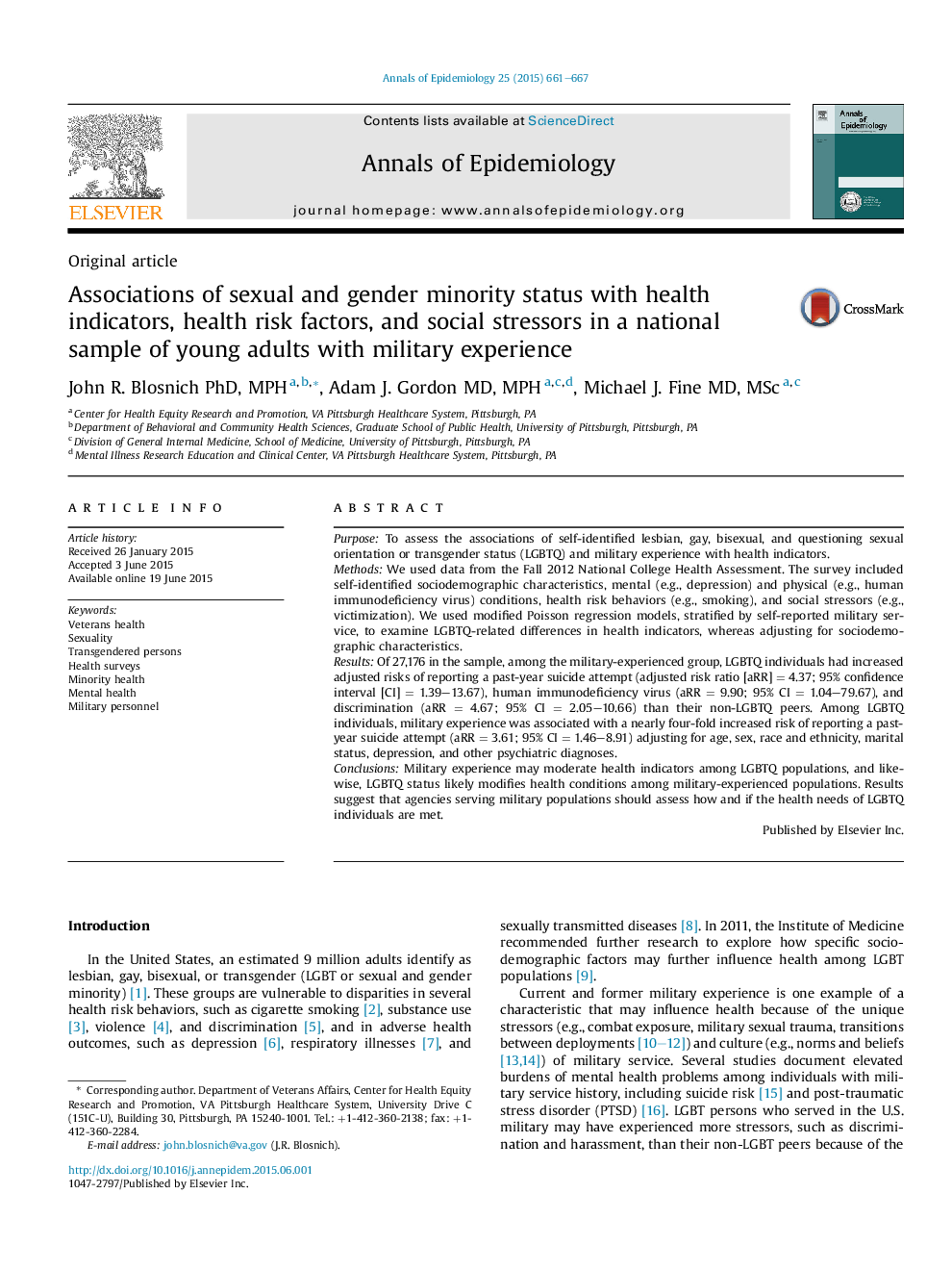| Article ID | Journal | Published Year | Pages | File Type |
|---|---|---|---|---|
| 3443797 | Annals of Epidemiology | 2015 | 7 Pages |
PurposeTo assess the associations of self-identified lesbian, gay, bisexual, and questioning sexual orientation or transgender status (LGBTQ) and military experience with health indicators.MethodsWe used data from the Fall 2012 National College Health Assessment. The survey included self-identified sociodemographic characteristics, mental (e.g., depression) and physical (e.g., human immunodeficiency virus) conditions, health risk behaviors (e.g., smoking), and social stressors (e.g., victimization). We used modified Poisson regression models, stratified by self-reported military service, to examine LGBTQ-related differences in health indicators, whereas adjusting for sociodemographic characteristics.ResultsOf 27,176 in the sample, among the military-experienced group, LGBTQ individuals had increased adjusted risks of reporting a past-year suicide attempt (adjusted risk ratio [aRR] = 4.37; 95% confidence interval [CI] = 1.39–13.67), human immunodeficiency virus (aRR = 9.90; 95% CI = 1.04–79.67), and discrimination (aRR = 4.67; 95% CI = 2.05–10.66) than their non-LGBTQ peers. Among LGBTQ individuals, military experience was associated with a nearly four-fold increased risk of reporting a past-year suicide attempt (aRR = 3.61; 95% CI = 1.46–8.91) adjusting for age, sex, race and ethnicity, marital status, depression, and other psychiatric diagnoses.ConclusionsMilitary experience may moderate health indicators among LGBTQ populations, and likewise, LGBTQ status likely modifies health conditions among military-experienced populations. Results suggest that agencies serving military populations should assess how and if the health needs of LGBTQ individuals are met.
